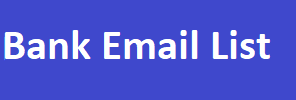We recommend starting with studying the official manuals Google for setting up advertising campaigns. This is an authoritative and most up-to-date source of information, allowing you to obtain fresh information without being tied to a specific year of publication of materials.
After getting acquainted with the basics, you should delve into studying tools such as Google Analytics and AdWords, which reveal the principles of working with data and setting up advertising campaigns. It will also be useful to study specialized blogs and forums, where experienced PPC specialists share their developments and recommendations regarding the subtleties and nuances in this area.
What knowledge should a PPC specialist have?
There is a certain gradation. Based special database on it, the level of knowledge that an expert should have is determined.
Junior
Work experience – 4-12 months. At the entry level, a contextual advertising specialist must have basic knowledge and skills:
- understand the basics of Internet marketing and the principles of advertising systems (Google Ads and others);
- know the terminology and metrics used in contextual advertising (CTR, CPC, conversions, etc.);
- be able to create and set up simple advertising campaigns under the guidance of more experienced colleagues;
- have basic skills in working with analytics tools (Google Analytics);
- Know the basics of HTML and CSS to create landing pages.
In this position, the employee will perform dearthaí nuálaíocha do bhoscaí tasks in a team under the guidance of a team leader. He can also independently manage a client project.
Middle
After about a year, the employee is transferred to the Middle position. This is the middle level, at which the contextual advertising specialist must have deeper knowledge and experience:
- confidently use tools for creating and setting up advertising campaigns in various systems;
- understand the principles of selecting target audiences, keywords and writing effective ads;
- have skills in data analysis and optimization of advertising campaigns to increase their effectiveness;
- know the principles of A/B testing and be able to conduct tests to improve results;
- understand the basics of programmatic advertising and the use of automated strategies;
- Know web analytics tools at an advanced level.
The specialist’s responsibilities include by lists preparing media plans, independently managing projects, organizing meetings with clients, preparing publications and cases on behalf of the manager.
Senior
Senior status requires at least 2.5 years of experience in content advertising. A specialist at this level must demonstrate expert knowledge and skills:
- deeply understand the algorithms and operating principles of various advertising systems;
- have experience in managing complex advertising campaigns with large budgets;
- have skills in strategic planning and distribution of advertising budgets;
- have expert-level knowledge of analytical tools and advertising campaign optimization;
- know advanced techniques and strategies in the field of contextual advertising;
- be able to conduct training and mentoring for junior specialists.
Duties include independent preparation of cases, meetings and work with high priority clients.
Team Lead PPC
A specialist of this level must have the following knowledge and skills:
- have expert knowledge in the field of contextual advertising and Internet marketing in general;
- have experience managing teams of PPC specialists and distributing tasks;
- have skills in planning, setting tasks and monitoring project implementation;
- be able to analyze data at a strategic level and make informed decisions;
- know project and team management methodologies;
- have skills in presenting and defending advertising strategies to clients or management.
Team Lead often becomes the head of a team of specialists and helps interns, Junior, Middle, and Senior specialists to get acclimated. Leadership qualities, the ability to motivate and develop a team are important to him. The next stage of career growth is the head of the department of the RRS.
Pros and cons
Like any activity, the work of a PPC specialist has both positive and negative sides. Let’s start with the positives.
Pros of the job
A PPC manager is a valuable asset in the labor market. The profession provides a decent income level, so it is in high demand. Experienced professionals in this field often receive lucrative offers from large companies. In general, the IT sphere is considered a promising and stable niche for building a career.
In addition, this profession provides the opportunity for remote work or freelancing, which can be convenient for students, people with disabilities and those who prefer a flexible schedule.
But, of course, there were some downsides.
Cons of the job
The work requires meticulousness, attention to detail, and the ability to work with numbers and data. It is not as creative as, for example, the work of a designer. If you quickly lose interest when working with reports and analytics, it is worth considering other professional fields.
In some complex niches, such as medicine, there are strict restrictions for contextual advertising. There are also areas with very high competition or specific products. And in such cases, it is quite difficult to develop an effective advertising strategy.
In addition, the PPC specialist is responsible for the distribution of the advertising budget. It is necessary to constantly monitor the effectiveness of each campaign, quickly react to changes and quickly redistribute budgets if necessary. The pressure can increase during periods of high competition or unstable market conditions, when more careful control of expenses is required. This can be scary for some, because improper budget management can lead to significant financial losses for the company.
Conflicts between marketing and sales departments are also common, with one side blaming the other for the lack of results. However, a competent PPC specialist can defend his work by providing relevant data and analytics.






